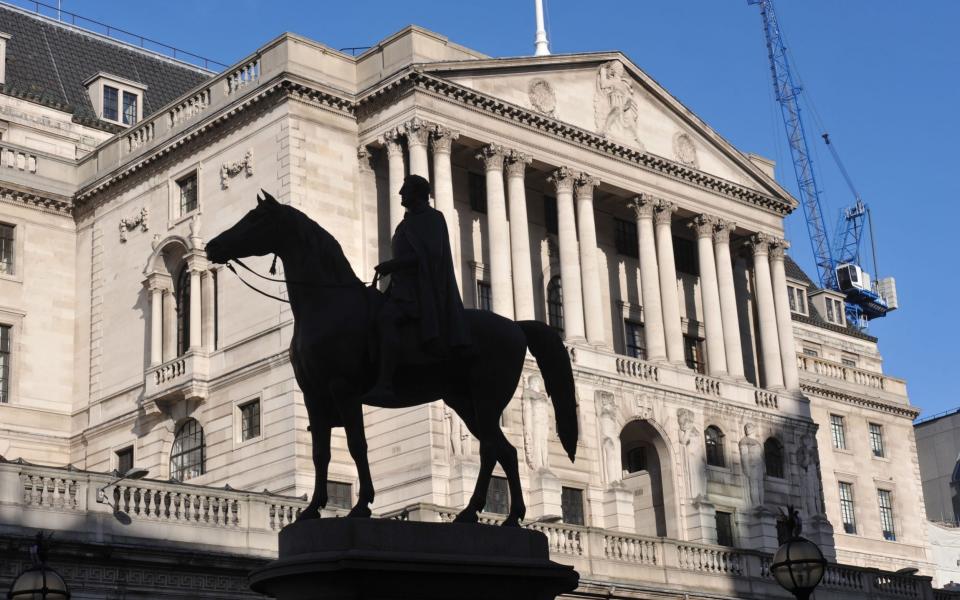Negative rates could punch £25bn hole in pension schemes

Negative interest rates could punch another £25bn hole in gold-plated pension funds, experts have warned.
The Bank of England has already cut interest rates to a record low 0.1pc but are weighing up whether to go further in an effort to boost economic activity during the pandemic.
Silvana Tenreyro, a member of the Monetary Policy Committee that sets interest rates, told The Telegraph on the weekend that evidence from other countries to have adopted sub-zero interest rates was “encouraging” and that banks would cope with the added pressure on their finances.
Sir Dave Ramsden, the Bank’s deputy governor, said on Monday that rate-setters were “not about to use negative interest rates imminently”.
Sterling rallied to more than $1.29 following Sir David's comments and as optimism increased over a Brexit deal between the UK and the EU but the pound later gave up some of its gains.
The prospect of an interest rate cut could concern companies that are still paying into defined benefit (DB) schemes, which pay retired workers a fixed proportion of their salary.
Lower interest rates make providing such pensions more expensive because they reduce expected investment returns meaning schemes need to invest more money up front to be able to pay pensions when they fall due.
Steven Taylor, partner at pensions advisory firm LCP, estimated that long-term interest rate measures used by pension schemes had fallen by 0.5pc this year, increasing their collective deficits by £50bn.
While markets may have already partially priced in further cuts, a reduction of the Bank rate could open the gap further.
Deficits could plausibly increase by an additional £25bn if the long-term expectation for rates falls by another 0.25pc, according to LCP.
Mr Taylor said: “Over 2020, further deficits have emerged in many DB schemes, and this could get worse if the Bank of England moves to negative interest rates."
Schemes that have hedged against rate movements should be protected from the fallout but other schemes may need extra contributions from their sponsoring employer down the line, he added.
The aggregate deficit of the 5,422 DB schemes tracked by the Pension Protection Fund was an estimated £140.5bn at the end of August, with more than 3,500 schemes in deficit.

 Yahoo Finance
Yahoo Finance 